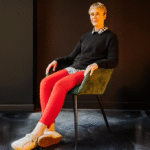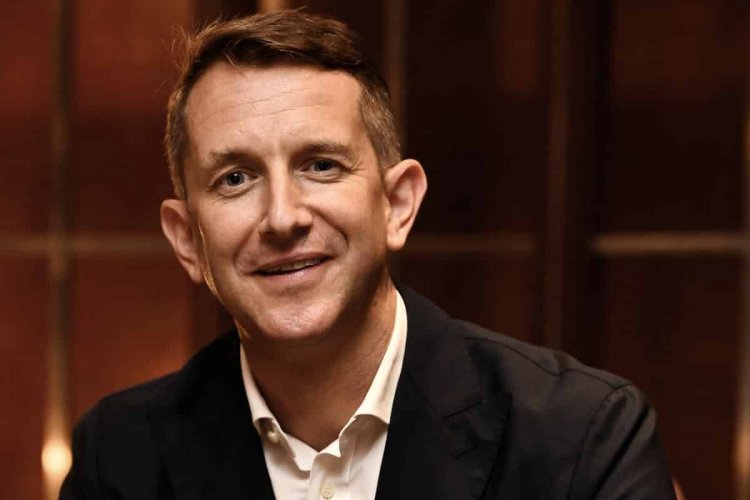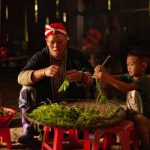Nicholas, today we are going to talk about something that is very close to my heart, coffee! Before we go into that, let’s start off by telling Marketing In Asia readers about Philips?
Philips is a leading health technology company focused on improving people’s health and enabling better outcomes across the health continuum from healthy living and prevention, to diagnosis, treatment and home care. Philips leverages advanced technology and deep clinical and consumer insights to deliver integrated solutions. We are a leader in diagnostic imaging, image-guided therapy, patient monitoring and health informatics, as well as in consumer health and home care.
There is a rapid consumer growth in terms of Singapore’s coffee industry in recent years. Why is that so?
Over the last few years, Singapore’s coffee industry experienced high-value growth, driven by consumers who have become more discerning and want to have more control over the choice of their coffee. People have never been more eager to take ownership of their lifestyles and choices, and the need to do so has never been greater.
Philips’ entry in Singapore marks a new chapter for coffee enthusiasts. With our heritage with Saeco, a company that has extensive experience and credibility in the espresso machine market and consumer know-how, our goal is to refresh the Singapore market with an exciting and technologically advanced range of accessible and sustainable solutions that address evolving consumer demands for fresher, healthier solutions for the home with fuss-free professional-grade results.
As a Singaporean, I grew up seeing my parents and those around me drinking locally made coffee, you know the strong type you get in coffee shops around the island. Now, it is a different ball game altogether, consumers’ palette is a bit more sophisticated – Singaporeans don’t just drink coffee; they want to live the coffee experience. Walk us through the shifts we see over the years with regards to this, Nicholas.
Tastes and priorities have changed over the years. In the past, the first wave of coffee was focused on mass production with very little differentiation in the type of roast or flavours. The next wave of coffee (second wave) saw a major transition towards coffee being viewed as a social lifestyle tool, catalysed by well-renowned large coffee chains.
This was later displaced by the third wave of coffee which is a movement characterised with high-quality coffee and takes into consideration several important factors when sourcing for coffee beans such as its aroma, flavour and texture.
In the future, I anticipate that sustainability will play an even bigger role for the coffee industry as consumers demand for more sustainable solutions for how their coffee is made and become increasingly aware of its impact on farmers and climate change.
Let’s talk about the role technology plays in making high-quality coffee more accessible to consumers.
When it comes to brewing a quality cup of coffee, there are a lot of factors that come into play. There is an art in coffee making and this involves the knowledge and experience when it comes to managing variables in the process such as the coffee origin/roast, freshness of beans, water quality, temperature and pour to name a few. At the same time, you cannot make coffee without technology because precision in temperature, extraction and filtration require technology to bring it to fruition. The more these variables are managed, the better your cup of coffee will taste.
For example, consumers who use the Philips 3200 Series LatteGo can create up to five delicious coffees including brewed coffee, latte macchiato, cappuccino, espresso, and americano. Using an intuitive touch display, you can easily select the aroma strength and quantity of beverage that you want.
The machine allows you to grind coffee beans just before brewing a cup, to ensure maximum freshness and flavour. This is made possible with the machine’s durable ceramic grinders which can grind up to 20,000 cups of coffee from ultra-fine to coarse beans. The customisation options allow users to brew a perfect cup of catered specifically to their taste-buds.
Technology has simplified the coffee-making process and made it more sustainable and accessible for consumers to perfect their own brew. It empowers consumers with the right tools to achieve the same level of quality, convenience and customisation that we’ve come to expect in specialty coffee shops and artisanal cafes, thereby making artisanal coffee more accessible to everyone.
Consumers are savvier these days and put sustainability pretty much on top of their list for everything. How does Philips approach this?
We strive to meet the needs of consumers through technology by reimagining the way we live. Our approach to sustainability is based on developing and delivering products and solutions that improve people’s lives and investing resources to address social challenges and creating healthy communities. In addition, we also believe in developing green technologies and products, taking action to reduce the ecological footprint of our operations and working towards an injury and illness-free workplace.
When combined, this will help to promote a healthier and more sustainable world by delivering social and ecological benefits for the business, environment and customers alike.
The way in which we do this is by investing in sustainable solutions that consider both the needs of people and the ecology of the planet. The new Philips LatteGo coffee machine, for example, comes with sustainable packaging and the coffee machine has an eco-setting that keeps it energy efficient. Furthermore, since the coffee machine does not require sachets or capsules, it is a more sustainable option because all you need are the coffee beans of your choice to make coffee.
Nicholas, you are a seasoned senior executive with more than 15 years’ experience in global consumer electronics. Tell us about yourself.
In my present role, I’m responsible for the overall strategy, direction and management of the Personal Health business for Philips across 11 countries in the ASEAN Pacific region.
Before moving to Singapore for my current role in June 2018, I was Vice President and Business Leader for Espresso at Philips. Prior to that, I was a Commercial Director at Saeco International Group where I worked with a team to re-position the company as a premium brand, significantly improving quality via lean program implementation and introduced cutting-edge new product innovations such as Saeco Xelsis and Philips LatteGo. I led a team that drove communication and activation programmes globally to build a market leadership position for the brand.
Before joining Philips, I held various sales and marketing roles at companies such as De’ Longhi and Kenwood. This was where I honed my craft and developed extensive industry knowledge about the global coffee and home appliances industry.
My journey with coffee has followed me throughout most of my career. In fact, my close acquaintance with the art of coffee making began when I was working part-time as a barista at the Park Royal Lobby Bar in Wellington to finance my studies.
When I’m not at work, I am an avid cyclist and have been a member of the Rapha Cycling Club since moving to Singapore; a professional cycling club where we cycle 100km a go. Recently, I’ve participated in triathlons – completing my first half Iron Man in my home country, New Zealand, last year. For leisure in Singapore, I coach my kids’ rugby teams at the Centaurs Club, as well as sing with friends in Rock or Gospel music groups.
The market is filled with the latest and most innovative coffee machines. How do you ensure Philips stands out in such a chaotic space?
By taking a human-centric approach, we are able to carry out extensive research into people’s behaviour and needs, map out entire experience journeys to better understand the full-human context. What also sets us apart from the competition is our commitment to bringing new healthcare technologies as well as innovative and locally relevant products that make a real difference to consumers.
For example, our Philips LatteGo coffee machines are designed to meet the needs of coffee enthusiasts and are carefully engineered to merge the sophistication of professional-grade speciality machines into the comforts of home. The result is a high-quality coffee experience that simplifies the artisanal process and empowers consumers with a bean-to-cup experience that is unmatched in freshness, personalisation and convenience.
Is the coffee-craze here to stay; or will we see a slowdown?
According to market research, Singapore’s coffee industry is estimated to be worth US$1,760 million and the segment is projected to grow by 4.3% in 2020, with the demand for roast coffee expected to eclipse the demand for instant coffee.
As Singapore’s coffee industry continues to innovate, we will see consumer preferences shifting towards high-quality coffee and coffee being viewed more like an experience. This change in perception has resulted in a prolonged shift in consumer preferences and the increasing interest for out-of-home coffee consumption trends such as café hopping. It’s clear that the coffee craze is here to stay.
Also, as the coffee industry continues to evolve, we will see better, faster and more sophisticated coffee machines made accessible for consumers at home – with consumers understanding that fresh coffee is quality coffee, and the concept of “fresh” doesn’t have to be complex.
Philips has been around for a very long time. The name is synonymous with consumer electronics, coffee appliances. Going forward, what are some of the things coffee consumers can look forward to?
At Philips, we are constantly innovating to deliver new products and services that meet the needs of consumers who want fresher, fuss-free café style coffee at home. With our heritage and track record in professional healthcare, Philips works closely with expert partners in gathering consumer insights to better understand the needs of the consumer to inform and enable exciting and innovative solutions that meet evolving consumer demands. With this, we innovate by using technology to make it easier and more convenient for consumers to make healthier lifestyle choices – even in your first coffee to help you kick-start your day!
When it comes to strategies, how important is branding to you?
In a market that is competitive and saturated as the coffee industry, branding is paramount to help a company stand out against its competitors. Branding is also critical to build a future business and a well-established brand can increase a business’ value by affording a company more leverage in the industry that it operates in.
With strong branding, it becomes easier for a company to generate new customers because of the positive impression that the company has among consumers. To succeed in branding, companies need to first understand the needs and wants of your customers. For example, when we first launched the Philips LatteGo coffee machine, we realised that coffee lovers want high-quality coffee and they want it fast. This insight helped to inform our decision to launch the Philips LatteGo and position it as a revolutionary new espresso machine that gives you both fresh and fast, in less than two minutes.
Any parting words, Nicholas?
Philips is in a unique position to bridge both technology and consumer insights to develop innovative solutions that meet the needs of consumers.
Our recently launched Philips 3200 LatteGo is a breakthrough innovation that allows consumers to make fresh coffee easily, letting them enjoy café style coffees at home. It also addresses consumer pain points by removing the hassle of cleaning and maintenance – making artisanal coffee more accessible to everyone.
If good coffee is a necessary part of your daily routine and you are not willing to compromise on the quality of your coffee, I highly encourage you to check out Philips LatteGo!

















